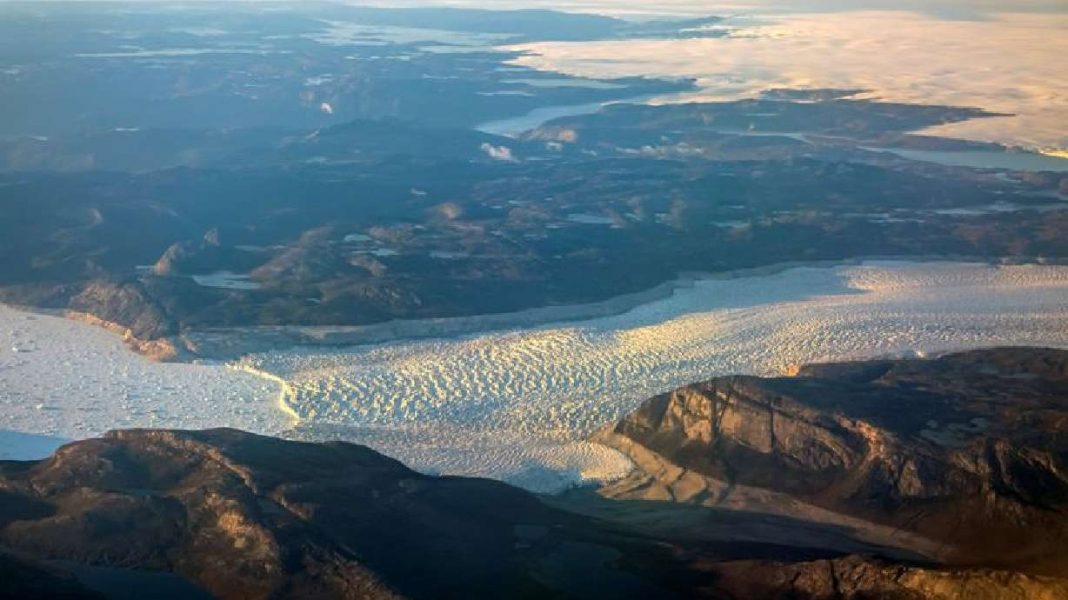LONDON — The Greenland Ice Sheet has been a topic of concern for scientists and environmentalists alike. A recent study published in the journal Nature revealed that the ice sheet lost a staggering 1,930 square miles of area between 1985 and 2022. This is the first comprehensive estimate of area loss on such a large scale, shedding light on the alarming rate at which the ice sheet is shrinking.
The study attributed this significant shrinkage to the loss of 1.03 trillion tons of ice as glaciers retreated, with ice chunks breaking off from the glaciers through a process known as “calving.” This process occurs at the terminating ends of the glaciers, contributing to the overall loss of ice.
What makes this study particularly groundbreaking is that it is the first to fully estimate the amount of ice lost specifically due to glacial retreat. Previous estimates of changes to the Greenland Ice Sheet’s mass balance may have underestimated these losses by as much as 20% by neglecting glacial retreat.
To put the 1,930 square miles into perspective, it is larger than the area of Rhode Island, which spans 1,545 square miles. The study utilized over 200,000 satellite and AI observations of glacier positions to analyze changes over time, providing a comprehensive understanding of the ice sheet’s decline.
According to study co-author Alex Gardner, an earth scientist at NASA’s Jet Propulsion Laboratory, “In Greenland, we have these areas around the edges where everything is just kind of retreating and crumbling. The previous methods weren’t really that great at measuring that change in the ice sheet. But the change is huge.”
The Greenland Ice Sheet, one of the world’s two remaining ice sheets, covers about 80% of Greenland’s landmass and is comprised of hundreds of glaciers. If fully melted, it would raise global sea levels by about 23 feet, posing a significant threat to coastal regions around the world.
With the Arctic warming four times faster than the rest of the world due to climate change, scientists warn that the melting of the Greenland Ice Sheet will inevitably raise sea levels by at least 10.6 inches due to the warming that has already occurred.
While the new estimate of ice loss from glacial retreat may have little impact on global sea levels, scientists emphasize that it could have a significant impact on ocean circulation. The influx of freshwater into the salty ocean could strengthen coastal currents around Greenland and weaken the Atlantic Meridional Overturning Circulation, which plays a crucial role in regulating global climate.




Agree It’s alarming to see the rapid decline of Greenland’s Ice Sheet within just four decades. Urgent actions are needed to address the consequences of climate change and protect our planet.
Disagree The decline of the Greenland Ice Sheet may not be as significant as researchers claim.
Disagree The decline of the Greenland Ice Sheet may not be as significant as researchers claim. Climate change is a natural phenomenon that has occurred throughout history, and it’s important to consider all factors before jumping to conclusions.